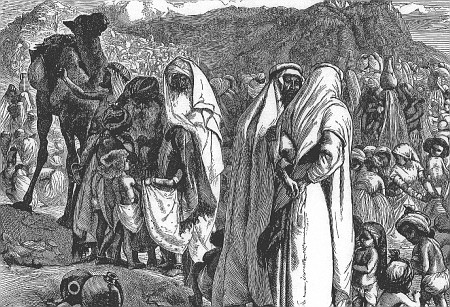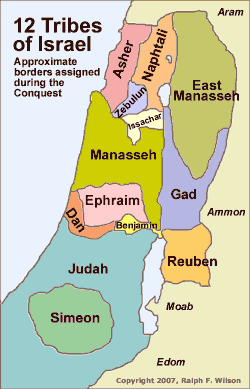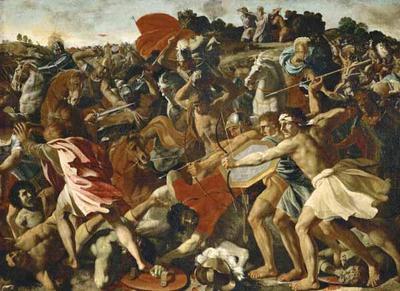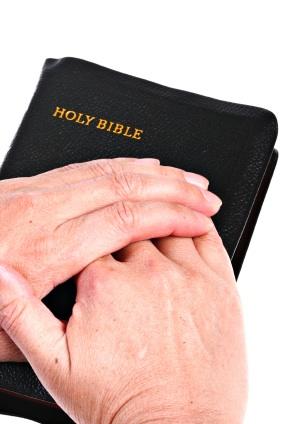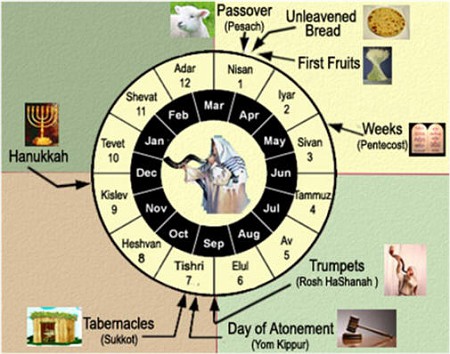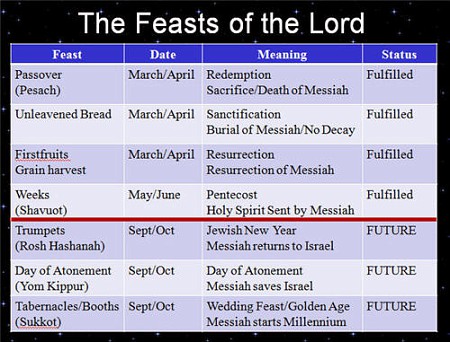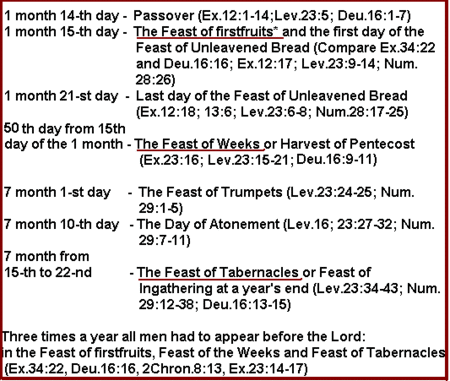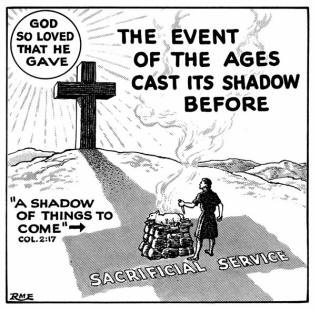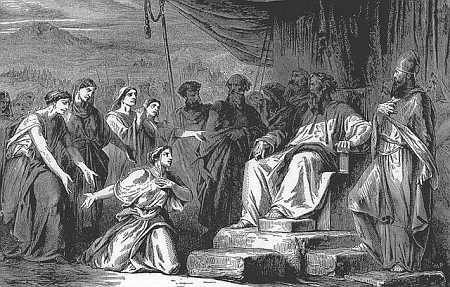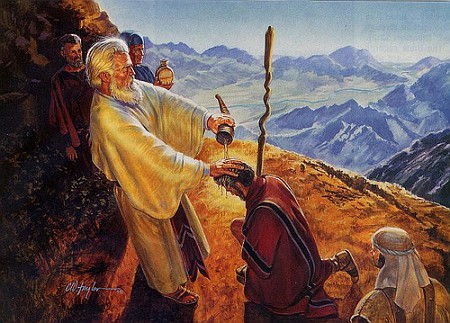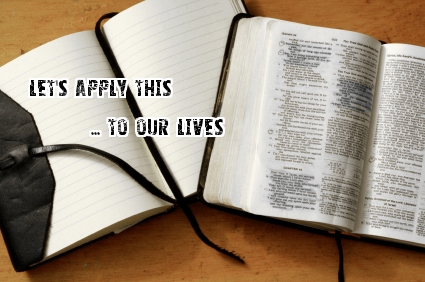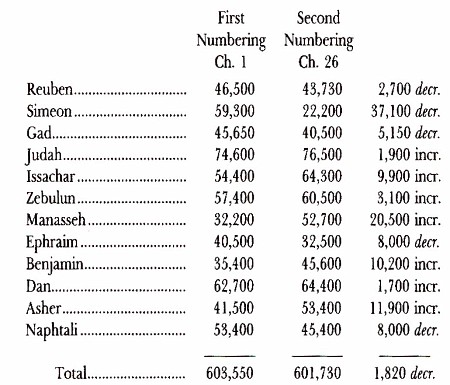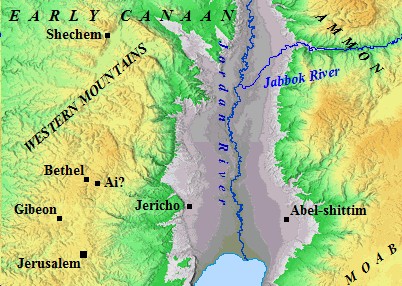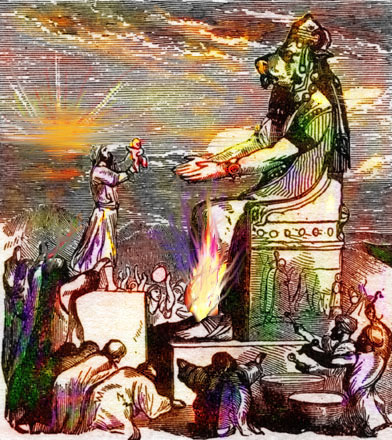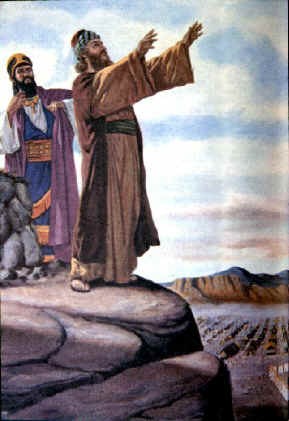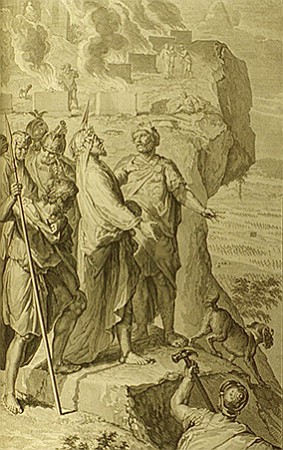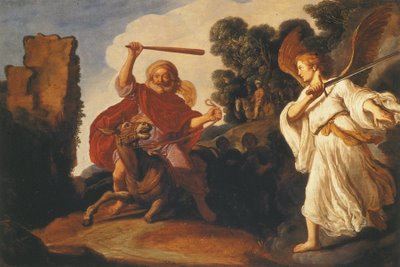 Review & Intro: In Numbers Chapter 21, Israel captured the Amorites' land of Jazer & Gilead. Now, in Numbers 32, the nation is poised to cross the Jordan River and begin taking the land of Canaan that the Lord had promised to Abraham and his descendants. Think of how exciting it must have been to be so close to the land of milk and honey that had been promised for so many years! Deuteronomy states they will live in cities they didn't build and crops they didn't plant. Yet, Gilead ... is a fertile plot of land east of the Jordan River and one that will be great for the many possessions of these men and their families - the sons of Gad and the sons of Reuben just want to "settle" and "forfeit" the promised land - Have you ever settled for "good" when God had the "best" to come? Where do we end up many times when we choose our desire before waiting on fulfilling God's desire in our lives? For these families, they will end up mixing with the peoples around them and worshiping their gods; they will fall away from their faith in the God of Abraham, Isaac, and Jacob, and eventually they will end up being taken captive by the king of Assyria. (1 Chronicles 5:25,26) .....
Review & Intro: In Numbers Chapter 21, Israel captured the Amorites' land of Jazer & Gilead. Now, in Numbers 32, the nation is poised to cross the Jordan River and begin taking the land of Canaan that the Lord had promised to Abraham and his descendants. Think of how exciting it must have been to be so close to the land of milk and honey that had been promised for so many years! Deuteronomy states they will live in cities they didn't build and crops they didn't plant. Yet, Gilead ... is a fertile plot of land east of the Jordan River and one that will be great for the many possessions of these men and their families - the sons of Gad and the sons of Reuben just want to "settle" and "forfeit" the promised land - Have you ever settled for "good" when God had the "best" to come? Where do we end up many times when we choose our desire before waiting on fulfilling God's desire in our lives? For these families, they will end up mixing with the peoples around them and worshiping their gods; they will fall away from their faith in the God of Abraham, Isaac, and Jacob, and eventually they will end up being taken captive by the king of Assyria. (1 Chronicles 5:25,26) ..... Numbers Chapter 32 - Observation Questions
1. What did the sons of Reuben and the sons of Gad possess? vs.1a
2. What did they think when they saw the land of Jazer and the land of Gilead? vs.1b
3. Who did they talk to about receiving that land for themselves and their possessions? vs. 2
4. What land (which had already been conquered) did they speak specifically about to Moses, Eleazar the priest, and the leadership? vs. 3 - Name 9 places.
5. What made this land seem so perfect in their eyes for their needs? vs. 4
6. They asked if they could remain on this side of the Jordan and not cross over with everyone else to the land God had promised to give them. (vs.5) How did Moses respond to their request? vs. 6
7. Moses knew this would be a discouragement to the rest of the sons of Israel who still had more of the journey and warfare ahead of them. (vs.7) ... What did Moses compare this request to? vs. 8
8. We need to review the situation at Kadesh-barnea. That was when the 12 went to spy out the land. Ten came back and discouraged everyone by the size of the people in the land, saying they were "grasshoppers" in their eyes. Only Caleb and Joshua had faith to say they would overcome and God would be with them. As a result, the people listened to the negative report rather than the positive one. Instead of possessing the land at that time, they were 40 years of wandering in the wilderness. The older generation has died off and now the younger generation is acting the same way and Moses is not happy about it. (vs.8-13) ..... What did Moses say would happen if they turned away as their father's had done? vs.14,15 -
9. The sons of Reuben and the sons of Gad (and the sons of the half tribe of Manessah too - see vs.33) ... said they would build sheepfolds for their livestock and cities for their little ones on this side of the Jordan, but they would "be armed and ready" to go before the sons of Israel until they all had their places on the other side of the Jordan. (vs.16-17) ... What did they promise not to do until every one of the sons of Israel had possessed his inheritance on the other side of the Jordan and beyond? vs. 18,19
10. Moses agreed with them that they could be free of obligation toward the Lord and toward Israel to possess the land on this side of the Jordan under several circumstances. What were they? vs.20-22 - Name 3 things
11. If they did not do these things, what could they be sure of? vs. 23
12. The sons of Gad and the sons of Reuben agreed to build the cities for their little ones (vs. 24) and the sheepfolds for their sheep so that they could all remain in Gideon, while they themselves would be dressed for war to cross over the Jordan in the presence of the Lord to battle for their brothers. (vs.25-27) ...
13. So Moses gave commands to Eleazar the priest, Joshua, and the heads of the father's households of the tribes of Israel a commandment that if the sons of Gad and the sons of Reuben did "arm for battle", "cross over the Jordan with them", and "the land as subdued before them", they were to give the land of Gilead to them for their possession.(vs.28-29)... If they did not do these things, what were they to be sure and do for them? vs. 30
14. What did the sons of Gad and the sons of Reuben answering concerning this? vs. 31,32 -
15. What lands did Moses give to the sons of Gad, the sons of Reuben, and the 1/2 tribe of Joseph's son Manasseh? vs. 33
16. What cities did the sons of Gad build and fortify along with sheepfolds for their sheep? vs.34-36 - Name 8 cities
17. What cities did the sons of Reuben build? vs. 37-38 - Name 6 given
18. Who did Machir, son of Manasseh, take possession away from and where was it? vs. 39
19. What was given to Machir, son of Manasseh, to live in, by Moses? vs. 40
20. What did Jair, son of Manasseh, call the towns he took? vs. 41
21. What did Nobah name Kenath and its villages? vs. 42
Application:
22. The sons of Rueben and the sons of Gad as well as the half-tribe of Manesseh saw the well-watered land for their flocks and wanted that more than anything that could possibly be on the other side of the Jordan. They settled and compromised for what seemed good to them. God had land ready to bless them with in the land of Jordan. What promise went with the land of Canaan?
- Deuteronomy 12:10 -
23. They would not experience this safety being in the land they choose for themselves. In time, being so close to the land of Moab, they began to worship their gods and drift from the God of Abraham, Isaac, and Jacob. What Father Jacob (Israel) had said about Reuben, the firstborn, turned out to be true of his descendants as well. Comment on the prophecy given him.
- Genesis 49:4 -
24. Eventually, their descendants paid for their selfishness. They played the harlot with the gods of the nations around them and were the first to be carried away into captitivty by the king of Assyria. Comment on the verses below:
- 2 Kings 15:29 -
- 1 Chronicles 5:25,26 -
26. The sons of Reuben and Gad were so concerned about their many possessions; that all they could think about was grabbing the land to care for what they owned rather than being fully obedient to the Lord and His promises. They settled for what they thought was best in their own eyes to give them the most for themselves. Riches are fleeting and they are deceitful. They promise you temporary pleasure, but give no guarantees of security. It can be here today and gone tomorrow. Comment on the verses below:
- Proverbs 23:5 -
- Matthew 6:24 -
- Matthew 16:27 -
- Luke 12:15-21 -
- 1 Timothy 6:9-11 -
27. Where is our inheritance and what are we living for – this world - are are we storing up riches in heaven? The Lord will give us all that we need in this life and great reward in the next. He has great things in store for us. May we resist the temptation of the "Gilead Settlement" and continue to run the race that is set before us for that reward that is set before us. Comment on these verses:
- Matthew 6:19-21 -
- Hebrews 12:1-3 -
- 1 Corinthians 2:9 -
- 1 Corinthians 9:23-25 -
- Romans 8:28 -
- Colossians 3:24 -
- Jeremiah 29:11 -
28. Summarize the chapter and post a prayer if you would like.
